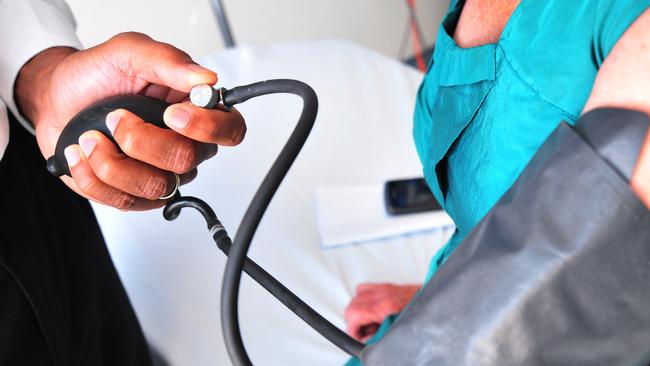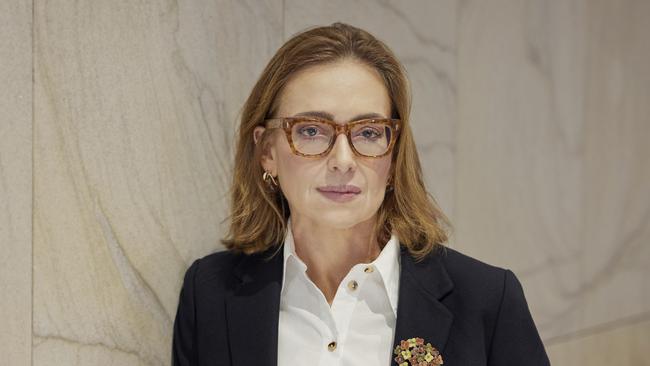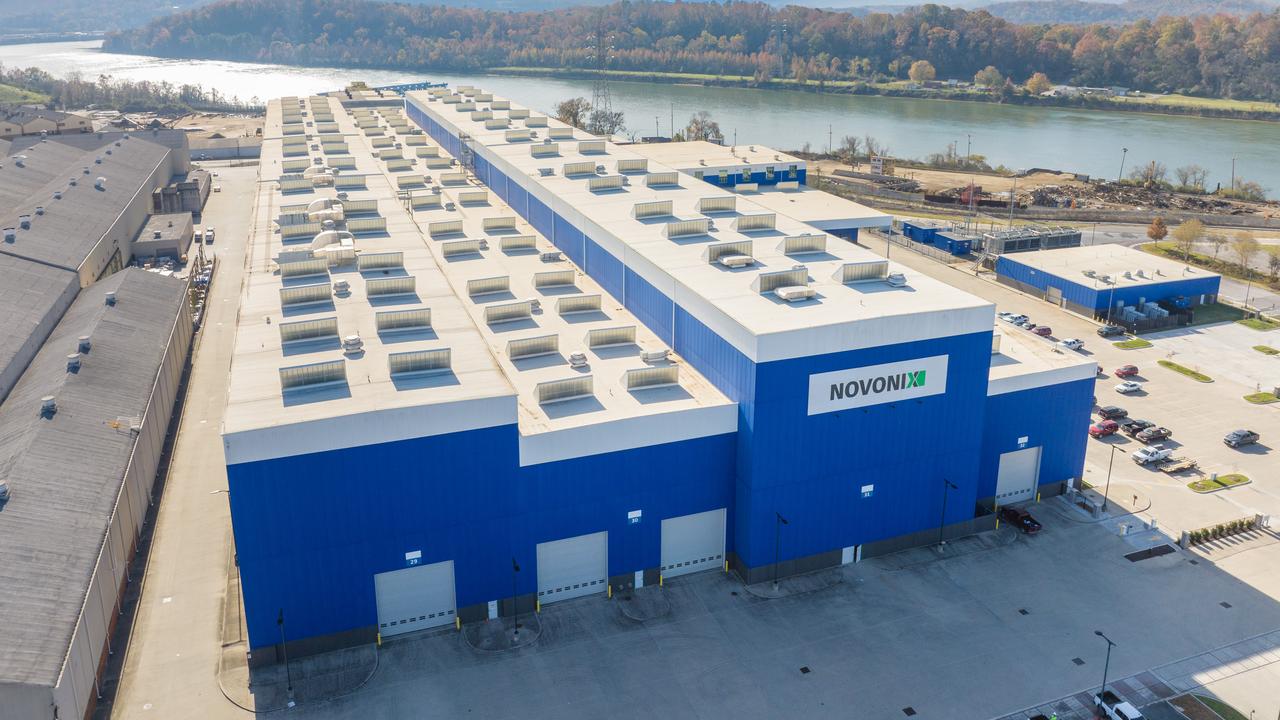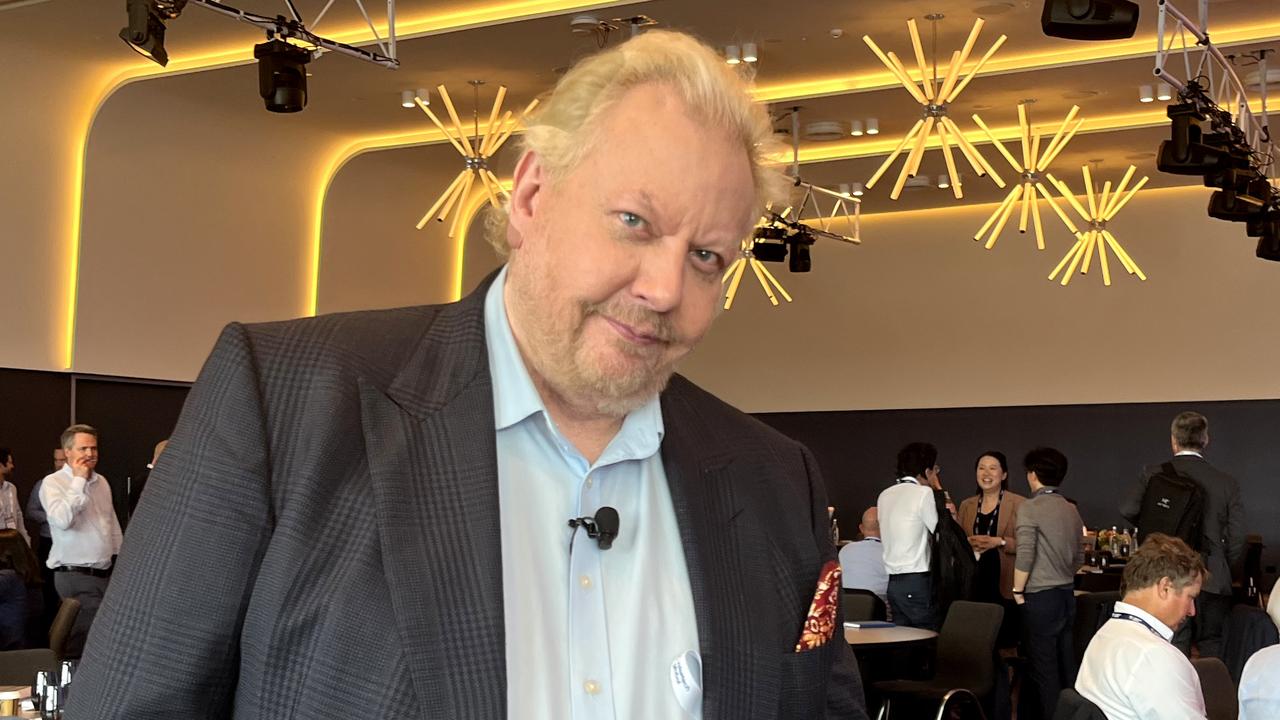The peak health fund lobby group says private equity should not be allowed into our health sector
A peak lobby group says the Healthscope furore is the canary in the coalmine as far as private equity in the health sector goes. Healthscope says that’s rubbish.

Business
Don't miss out on the headlines from Business. Followed categories will be added to My News.
Healthscope’s actions in breaking contacts with health insurers Bupa and AHSA fund members are a salutary lesson about the dangers of letting private equity get a toehold in our health system, the head of peak lobby group Private Healthcare Australia says.
But Healthscope chief executive officer Greg Horan says this is a simplistic take on the situation and ignores the heavy cost pressure the hospital sector is under, which has been recognised by major insurers such as Medibank, NIB and HCF — which Healthscope has struck new deals with.
Private Healthcare Australia boss Dr Rachel David told The Australian Healthscope’s move to walk away from its contracts with Bupa and the 26 funds in the Australian Health Services Alliance (AHSA), which cover about six million Australians, was an “almost kamikaze” move driven by the need for Healthscope to shore up its bottom line.
SEE THE FULL LIST OF AFFECTED HOSPITALS
Dr David said there was always going to be “friction” in the relationship between hospitals and major health funds, “but what I haven’t seen before is a private equity organisation actually tear up legal contracts for half the sector”.
“It’s almost what I would call a kamikaze move because there’s no way Healthscope can survive if half the sector deserts their hospitals,’’ Dr David said.
“Inevitably if they choose not to return and negotiate a sustainable outcome, what happens is the doctors leave because their patients won’t be able to afford the extra fees and they go to competitor hospitals and Healthscope loses its revenue.’’

Dr David said Healthscope’s future with its current business model was under a cloud, and said its private equity owners had a poor understanding of how to run a health business in Australia.
Healthscope was bought by Canadian private equity giant Brookfield in 2019 for $4.1bn.
“I don’t think Brookfield had a clue about how to manage hospitals or how the health system works in Australia when it got into the market,’’ Dr David said.
“The only intervention needed from the Federal Government is to prevent foreign private equity ever getting another foothold in our health system, given the disastrous outcome with Healthscope.”
Mr Horan said Healthscope hospitals had one of the industry’s highest net promoter scores, indicating the high level of quality they were delivering, and said other insurers such as Medibank, NIB and HCF had recognised that cost pressures meant a renegotiation of payment terms with hospitals was needed to ensure the sector remained sustainable.
“This is not a Healthscope problem, this is an industry-wide problem,’’ Mr Horan said.
“You’ve had multiple examples of out of contract (renegotiations) this year, you’ve had the financial health check which the government did themselves which deemed the sector uninvestable.
“Have a look at insurer profit pools compared to private hospital profit pools. The (private hospital) industry made a loss … compared with super profits for insurers.
“I just find it a ridiculous argument that the PHA is running with, when the fact is that insurers are paying out less, members have continued to pay more for their premiums.’’
Mr Horan said Healthscope’s owners had not taken a cent out of the company since owning it, and invested more than $275m last year.
Mr Horan said the deals with Bupa and AHSA members, which were only struck one year ago, needed to be reset because unforeseeable cost increases — such as large pay rises for hospital workers — would continue to squeeze margins.
“Healthcare inflation is not coming down, it’s increasing, and for people to not recognise the forward cost of care, then it’s beyond me why we would think that deals done 12 months ago are the right deals now across the sector,’’ Mr Horan said.
“No one could predict that wages would go the way they are going.
“It can’t carry on. What we’re trying to do is ensure we have a long-term viable and sustainable business.’’
Mr Horan said the deals Healthscope has previously struck with Medibank, NIB and HCF covered about 60 per cent of the market, showing they recognised the cost base had shifted and change was necessary.
He said the hospital operator remained open to negotiations with Bupa and the AHSA members.
Healthscope announced on Friday it had ended its three-year contract with Bupa and its two-year deal with AHSA fund members early, accusing the insurers of “greed” and putting their members at a disadvantage.
The company had in late October announced it would introduce a $100 gap fee for overnight hospital stays for Bupa and AHSA fund members, and said at the time customers who didn’t like it should switch funds.
Mr Horan said the action announced on Friday was the result of both insurers pursuing legal threats to stop the introduction of the gap fee it had proposed.
The terminations will come into effect from February 20 for Bupa, and from March 4, 2025 for the AHSA funds.
Bupa has 4.1 million health insurance members and the AHSA collectively covers more than 2.5 million people.
Once the deals come to an end, Bupa and the AHSA funds would likely have to pay what are called “second-tier default benefits” should their customers use Healthscope hospitals.
The second-tier default benefit for hospital treatment is at least 85 per cent of the average charge for the equivalent treatment, under that insurer’s negotiated agreements for comparable private hospitals.
More Coverage
Originally published as The peak health fund lobby group says private equity should not be allowed into our health sector





